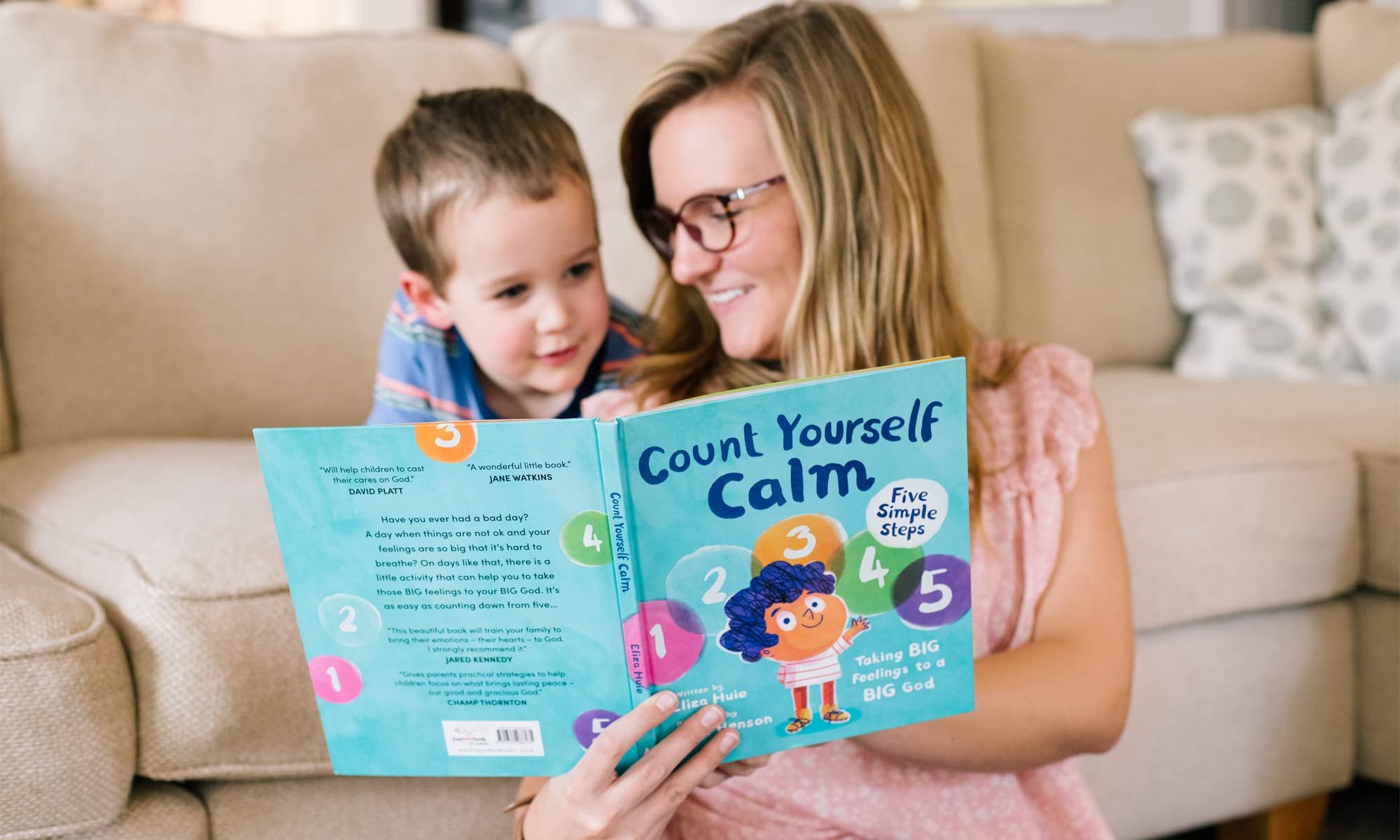Book Review: Count Yourself Calm
Bad Days, Big Feelings
We all have bad days. Whether you’re a kid who’s bummed out because you didn’t get a turn with your favorite toy at school, or an adult who’s disappointed because a meeting ran long and kept you from getting a workout in, it happens to all of us. While the certainty of difficult days is the same for adults and children alike, the way we deal with these frustrations can be very different. Regulating emotions can be especially difficult for young children, and sometimes adults too. Their emotions and feelings can get so big that it’s hard for them to see or feel anything else.
Parents have been trying to crack the code of how to help their kids calm down since the world’s first toddler lost their blankie (or whatever toddlers were obsessed with back then). Every mom and dad has tools they’ve inherited from their own childhood, with varying degrees of effectiveness. Unfortunately, none of them are silver bullets that work one hundred percent of the time. So, we’re always on the lookout for strategies, resources, and tools that can help us teach our children how to deal with their fear, anger, disappointment, etc. Thankfully, Eliza Huie has given us a shiny new tool for our parental toolbox in Count Yourself Calm.
Breathe In, Breathe Out
Huie begins the book by explaining that we all have days when we feel angry, sad, lonely, or hurt. Not only that, but people have been feeling these emotions since Adam and Eve first sinned all the way back in the garden of Eden. It’s not just kids who wrestle with their emotions, but their parents, teachers, friends, and neighbors do too.
She provides an activity that can help kids (and adults) work through their big emotions. It’s simple enough for young kids to grasp and understand, and honestly has proven to be helpful to this often-angry adult as well. It begins with a big, deep breath, and a prayer. From there, parents can help their kids count down from five.
“This book isn’t built as a life preserver to throw at a child and hope for the best. Instead, Huie encourages parents to engage with the book when things are calm.”
As parents count, they redirect their child away from their too big, out of control emotions by asking them questions. “Can you name FIVE things God made that bring you joy?” Each step down to one points the child to another question that has them reflect on what God has done and is doing in their lives. A quick piece of scripture is included alongside each question to remind us of God’s promises, commands, and characteristics. This all culminates in another big deep breath, and one last quick prayer as kids ask God to help them trust him.
Big Feelings, Big God
So how does this all work in practice? Should you ask your kid to put a tantrum on hold to sit down and quietly read a book and reflect on their emotions? Of course not! This book isn’t built as a life preserver to throw at a child and hope for the best. Instead, Huie encourages parents to engage with the book when things are calm. Like a lifeguard who’s trained to use a life preserver, parents who spend time working through these strategies with their kids when life is good, are ready to put those tools to use when emotions begin running hot.
Like any other strategy or technique, this book isn’t guaranteed to end a tantrum quickly. In fact, there may be times where trying to use this method blows up in your face and leads to your copy getting tossed at your head. However, that doesn’t mean it’s not worth a try. The more often you work through this breath, prayer, reflection technique without a tantrum or emotional storm going on, the easier and more effective it’ll be when things go off the rails emotionally.
Count Yourself Calm is short, simple, beautifully illustrated, and instructive. It offers kids the freedom to experience big emotions, but also points them to a bigger God who created them and gave them the capacity to feel those emotions in the first place. It helps kids to see God’s goodness in the midst of their own frustration, anger, or fear, and points them to biblical truth along the way.
This feels like a no-brainer to have on your shelf at home or in a church classroom. Parents should get a lot of mileage out of a resource like this, and is something that would be beneficial to revisit often (especially early on) to build these habits and strategies into their lives. It could also prove to be super helpful for church classrooms (Sunday School, Mother’s Day Out, etc.) to share these strategies with a group of kids.
Finally, while it’s geared toward younger children, the skills kids learned here will be invaluable as they grow up and continue to deal with increasingly more complex emotions. Giving kids a framework to experience their emotions and tools to help regulate them is an investment any parent should be happy to make. You may even find yourself becoming better able to deal with your own big emotions too.


